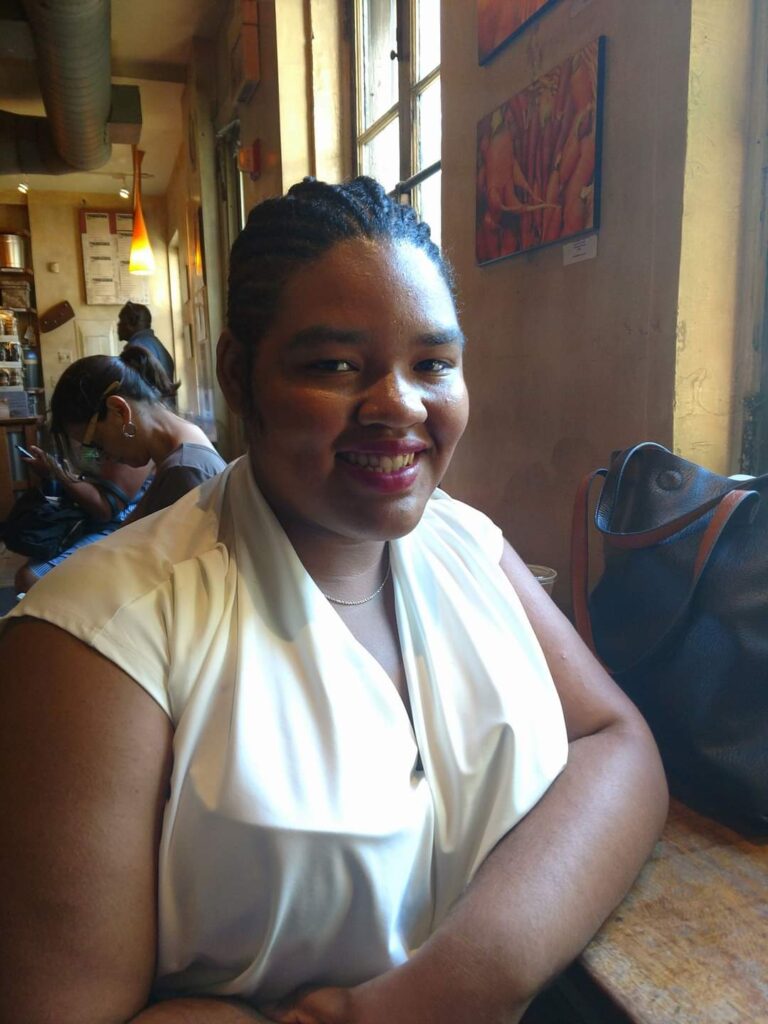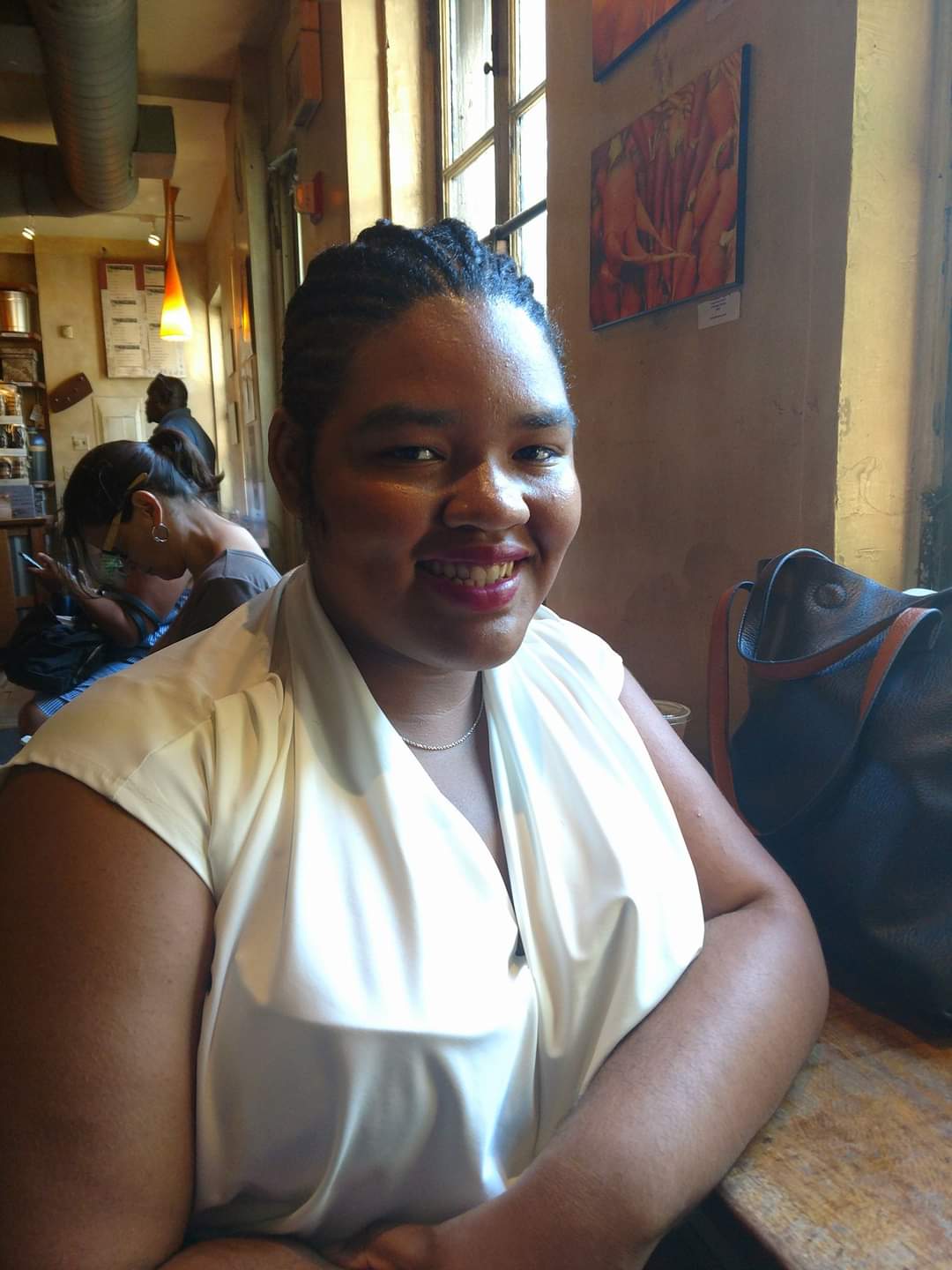
By Angelica Vega, Guest Contributor
It was 3:30 in the afternoon when I entered a SuperCuts near my university in Washington, DC, for what the second time in as many weeks. I would always go to the hair salon before an interview, and at the height of my search for a summer internship after my sophomore year, I had a lot of interviews to get ready for. This particular interview was for an internship that, while unpaid, looked very promising. I wanted it, and I wanted to look my best.
But on that day, while the hair stylist was busy drying and straightening my hair, I caught a whiff of something burning. To my horror, it was my hair, singed and laying dead over my face. My hair, the hair that my grandma had loved so much, that my mother was so proud of, and that I had maintained for so long as a representation of my heritage and unique beauty, that hair had just been damaged, severely, for the sake of some interview. I reevaluated a few things that day.
Society has conditioned us to believe that natural Black hair, and the ways it can be styled and worn, fall outside the boundaries of “professional” appearance. There are many recorded instances where Black people have been unreasonably forced to either change their hairstyles, or face unjust punishments, ranging from forfeiting opportunities to outright losing their jobs. To maintain this standard of “professional” appearances, I’m essentially required to chemically alter and straighten my hair, just to stand a chance in the interview room.
Throughout my upbringing, I was told that my natural hair was not “professional” enough for the opportunities I wanted. In essence, I was raised on the premise that who I was wasn’t good enough for what I wanted to do, and if I ever wanted to move up, I would need to give up part of my identity. The erasure of Blackness in the United States has a deep-running history, especially in the professional world, and this phenomenon manifests itself in our daily lives in ways that are alienating, exhausting, and sometimes downright dangerous.
As I reflected on what had happened to my hair, I came to another realization relating to my disability. From an early age, I was taught to view my speech disability in a negative way, encouraged by authority figures to hide it from others whenever I could. The stigmatization of my disability followed me to college. I would write out my answers in excessive detail, afraid of being misunderstood if I explained something poorly. I would practice pronouncing words and phrases I had trouble with, and before each class I’d pray that I would manage to avoid stuttering or getting stuck on my words. I would continue these rituals in preparation for my internship interviews, striving to embody the image of a perfect professional. By the time my interviews had been scheduled, I had already been urged by numerous professors to “fix my speech and grammar.” The process was physically and mentally exhausting. And in retrospect it is embarrassing how hard I tried to erase my disability for an unpaid internship.
Racist and ableist sentiments were embedded in how I viewed myself and my worth for many years. They made me believe that I had to change my identity in order to achieve my goals. I know I’m not the only one who has fallen victim to this lie.
Society refuses to acknowledge the value in Black Disabled bodies and would rather perpetuate a culture of conformity around White-centric able-bodied standards than give us the chances we deserve on our own terms. According to Talila A. Lewis, ableism operates as:
“A system that places value on people’s bodies and minds based on societally constructed ideas of normalcy, intelligence, excellence and productivity. These constructed ideas are deeply rooted in anti-Blackness, eugenics, colonialism and capitalism. This form of systemic oppression leads to people and society determining who is valuable and worthy based on a person’s appearance and/or their ability to satisfactorily [re]produce, excel and ‘behave.’”
As a result of this system, society demands that Black Disabled individuals change to suit its standards, while punishing those of us who cannot or will not by ignoring our existence, and convincing us to hold ourselves at fault. When the rare opportunity is given, our bodies and ideas are often exploited for little to no pay. This is especially the case for Black Disabled women. No matter how far we alienate ourselves from our essence, altering our appearance and speech to the point of “looking almost the same, but not quite,” all too often we will fall short of modeling the ideal candidate by no fault of our own, trapped in this culture which has already decided who its winners and losers will be.
It is vital to fundamentally change how we view disability and Blackness in society. Remove racist and ableist policies from schools and the workplace, stop the culture of unfairly policing Black Disabled bodies, and eliminate unpaid labor (especially unpaid internships). We must normalize Blackness and disability. These are among the first steps society can take to dismantle the barriers we face daily. While there are promising advancements being made, such as the proposal of the CROWN Act to ban hair discrimination, as well as President Joe Biden’s economic relief package ending subminimum wages for employees with disabilities, there remains more work to be done to move society forward.
Additionally, embracing and showcasing stories of excellence in the Black Disabled community should be a consistent must. Amanda Gorman, James Earl Jones, and Dr. Maya Angelou are some notable examples of Black Disabled people with communication disabilities who have broken down barriers and made history in their own respective fields and ways. In telling their stories and celebrating their legacies, it remains equally vital that we avoid the trap of pushing the “overcoming disability” narrative. At the end of the day, people don’t have to live extraordinary lives just to be valued and treated with dignity and respect. Learning our history, including us, and advocating with us in these ways are all part of creating a more just society for everyone.
At the individual level, try to make each day a healing opportunity to unlearn the anti-Black and ableist prejudices society has reinforced for so long. After the realizations I had following the hair burning incident, I started making an effort to reexamine and let go of my previous notions of “professionalism.” I began wearing my natural hair out on interviews and continued to do so throughout my first internship. I learned more about disability advocacy and combating stigma by joining groups like CommunicationFIRST, speaking up about communication disabilities, and loving my voice.
Not every day is a success, but it has been refreshing to finally be at a place where I can embrace and explore my identity as a Black Disabled woman without feeling shamed or judged. I want everybody to be able to feel that too, more than anything, because all bodies are beautiful and all bodies have value, regardless of what society says. To that end, we must reflect, organize, and continue to demand justice if we wish to one day live in a society where we won’t feel the need to hide our lived experiences or our identities.

